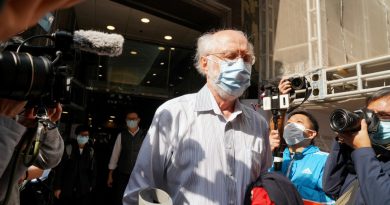‘Europe needs a break’: EU plots to restart travel and tourism despite COVID
Brussels (Reuters) – EU states should guarantee vouchers for travel cancelled during the coronavirus pandemic and start lifting internal border restrictions in a bid to salvage some of the summer tourism season, the bloc’s executive will say next week.
Tourism, that normally contributes almost a tenth of the European Union’s economic output, is among the sectors hardest hit by the global outbreak that has grounded nearly all travel.
Germany and other member states have urged a suspension of EU rules that force cash-drained airlines and the hospitality industry to offer full refunds for cancelled flights and trips instead of vouchers for future travel.
In response, the European Commission will tell member states to guarantee vouchers to make them more attractive to customers, according to a strategy document seen by Reuters ahead of official publication due on Wednesday.
“To provide incentives for passengers and travellers to accept vouchers instead of reimbursement, vouchers should be protected against insolvency of the issuer and remain refundable by the end of their validity if not redeemed,” the draft document said.
“Insolvency protection needs to be assured at the national level and secured vouchers need to be accessible to all passengers and travellers,” it added.
The EU executive will also tell the bloc’s 27 member countries to gradually lift internal border restrictions and restart some travel to help the ailing tourism sector.
Grave Trouble
Tourism normally brings some 150 billion euros every season form June through August with some 360 million international arrivals, according to the Commission.
But Europe’s external borders are now bound to be shut for any non-essential travel until at least mid-June, an emergency measure to limit the spread of the virus.
“Our tourism industry is in grave trouble,” the Commission is due to say, warning that 6.4 million jobs could be lost in the sector that has reported falls in revenue ranging from 50% for hotels and restaurants to 90% for cruises and airlines.
The pandemic set the EU on a path towards its worst-ever economic downturn and bitterly tested unity between member states fighting over medical equipment, export bans on drugs, chaotic border curbs and money to salvage their single market.
Titled “Europe needs a break” the Commission’s tourism strategy will call for targeted restrictions to replace a general ban on travel and seek a gradual lifting of internal border checks where the health situation has improved.
With Europeans most likely to stay at home or travel shorter distances this summer, peripheral EU regions and islands are likely to be shunned and will take longer to bounce back.
“Until a vaccine or treatment is available, the needs and benefits of travel and tourism needs to be weighed against the risks of again facilitating the spread of the virus… possibly leading to a reintroduction of confinement measures,” the draft plan said.



